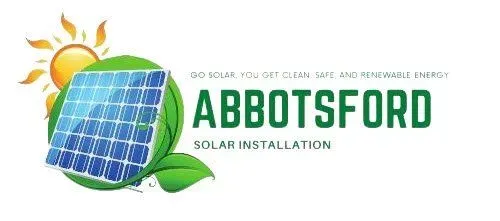Abbotsford Solar Installation
A Complete Guide to the Benefits of Solar Panels
According to the Department of Energy’s consumer guide to solar electricity, increasing energy prices and environmental worries drive homeowners to consider solar electric systems.
Installing solar panels, the main component of solar systems has emerged as a leading solution for sustainability and cleaner energy alternatives.
Today, let’s explore the
benefits of solar panels and everything you need to know about this solar energy.
Renewable Energy Source
The foremost benefit of solar panels is their ability to harness solar energy, a renewable resource. Unlike fossil fuels, which are finite and emit harmful pollutants, solar energy is abundant and accessible.
It offers a sustainable energy solution to reduce dependence on non-renewable energy sources while contributing to environmental conservation and energy security.
- Residential Power - Reduces utility bills. Increases energy independence.
- Commercial and Utility Scale Power - Lowers operational costs. Supports large-scale renewable energy integration.
- Passive Solar Heating and Cooling - Reduces the need for external heating and cooling sources. Enhances building efficiency.
- Portable Power - Powers small-scale devices, from calculators to parking meters. Enhances mobility and convenience.
- Solar Water Heating - Provides an eco-friendly method to heat water. Reduces electricity or gas costs for heating water.
- Agricultural Uses - Powers irrigation systems. Supports sustainable farming practices.
- Remote Power Supply - Delivers electricity to remote areas. Supports development and connectivity.
- Solar Lighting - Provides lighting without grid electricity. Enhances safety and accessibility in remote locations.
Economic Advantages
Solar panels require a high upfront investment but offer considerable economic benefits over time. By generating your own electricity, you can drastically reduce your utility bills.
Government incentives, such as rebates and tax credits, make
solar panel installation a financially viable option for many homeowners and businesses.
- Cost Savings - It significantly reduces energy bills. Savings vary based on system size, sunlight hours, roof size/angle, and local rates.
- Property Value Increase - According to the National Renewable Energy Laboratory fact sheet, a home's value increases by $20 for every dollar saved on energy bills.
- Financial Incentives - Government and utility incentives reduce solar installation costs. These incentives include tax credits and rebates.
Environmental Impact
- Greenhouse Gas Emissions: Adding solar capacity significantly lowers harmful emissions.
- Water Conservation: Solar photovoltaic cells need no water for electricity, conserving scarce water resources.
- Resource Efficiency: Compared to coal, solar uses less water and land, is less toxic, and materials are largely recyclable.
Energy Independence
Solar panels contribute to energy independence on both a personal and national level. Homeowners can protect themselves against rising energy prices and power outages by generating their own electricity.
On a larger scale, increasing the share of solar energy in the national energy mix reduces reliance on imported fuels, enhancing energy security and sovereignty.
Technological Advancement
The solar industry is at the forefront of technological innovation. Photovoltaic (PV) technology advances have made solar panels more efficient, durable, and adaptable to different environments and applications.
Innovations such as battery storage systems and solar-plus-storage solutions are enhancing the reliability and flexibility of solar power to meet a broader range of energy needs.
| Advancement | Description | Potential Impact |
|---|---|---|
| Perovskite and Silicon Tandem Cells | Combines silicon with perovskite materials, pushing efficiency beyond 33% in labs. Captures more sunlight spectrum. | Increases electricity generation at lower costs. |
| Perovskite Technology | Light, cost-effective, efficient energy conversion. | Could revolutionize solar technology. |
| Energy Storage Innovations | Advances in lithium-ion and solid-state batteries. Development of smart energy management and VPPs. | Improves efficiency and cost of solar energy storage. Enhances grid stability. |
Job Creation
Solar panels' design, manufacturing, installation, and maintenance require a skilled workforce, which contributes to employment opportunities in many regions. As the demand for solar energy continues to rise, so will job opportunities in this burgeoning sector.
Health Benefits
- Air Pollution Reduction: Solar energy cuts harmful emissions, which reduces air pollution linked to respiratory and cardiovascular conditions.
- Climate Change Mitigation: Solar panels address climate change and associated health risks and produce no greenhouse gases.
Assessing Solar Suitability
Unfortunately, not every home is ideal for solar. Factors influencing solar viability include:
- Roof Characteristics: South-facing roofs with a 30-45 degree slope, minimal shading, and good condition are optimal.
- Location: While solar panels don't require constant sunshine to be effective, geographical location affects their efficiency.
- Ownership and Regulations: Homeowners have fewer restrictions than renters or HOA members.
Installation and Technical Considerations
Choosing the right system involves various considerations, including:
- Energy Storage (Solar Batteries) - Use solar power day and night to store excess energy for reliability and independence.
- Inverter Selection - The choice between string inverters and MLPEs is based on system needs. MLPEs improve efficiency in varied conditions.
- Professional Consultation - Ensure the system is tailored to the home’s layout, energy usage, and financial parameters.
- Financial Incentives and Warranties - Investigate incentives and pay attention to warranties for performance and durability.
- Efficiency vs. Aesthetics - Balance between choosing efficient panels and those that fit your home's aesthetic preferences.
Consult a professional solar installer to determine the best system based on your energy needs, roof space, and financial goals.
Are There Risks?
You need to be aware of the following:
- Break-even Point: The time it takes to recoup the initial investment varies, but many homeowners break even within eight years.
- Maintenance and Longevity: Solar panels are relatively low maintenance but are a long-term commitment. Potential issues include inverter failures and the eventual need for panel replacement.

Embrace the Solar Revolution: Your Path to a Sustainable Future
The benefits of solar panels extend far beyond their ability to generate clean energy. From economic savings to environmental preservation, energy independence, and health improvements, the advantages of adopting solar energy are compelling.
As technology advances and the global community becomes increasingly aware of the need for sustainable energy solutions, solar panels stand out as a key component in transitioning to a cleaner, greener future. Contact Abbotsford Solar Installation today and start the solar switch.
Frequently Asked Questions
How do solar panels work in areas with less sunlight?
Solar panels don't require constant, direct sunlight to generate electricity; they can still produce energy on cloudy days, albeit at lower efficiency. Regions with less sunlight can benefit from solar panels by choosing high-efficiency models and optimizing system design for local conditions. Net metering and solar batteries help manage the variability in solar power generation.
Can solar panels provide energy during a power outage?
Grid-tied solar panel systems do not provide power during an outage for safety reasons. However, if your solar panel system includes a battery storage component or if you have a solar-plus-storage system, you can use stored solar energy during an outage.
The key components for enabling this include:
- Safety Precautions: To protect utility workers during repairs, grid-tied systems must be shut off in outages.
- Battery Storage: Allows use of stored solar energy during outages.
- Inverter Systems: Some inverters enable limited power use during an outage.
- Costs and Incentives: The cost of adding battery storage varies, and federal tax credits and state incentives help offset expenses.
How much energy does a solar electric system produce?
Solar panels are rated in watts based on their maximum power output under ideal conditions. This rating helps estimate the number of panels needed to meet your electricity needs. However, actual energy production depends on factors like:
- Roof orientation
- Shading
- Dust
- Solar panel conversion
- Wire losses
